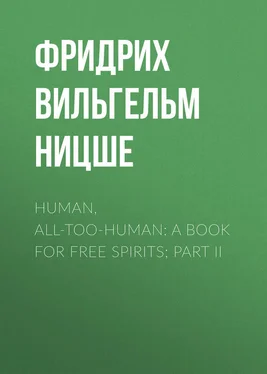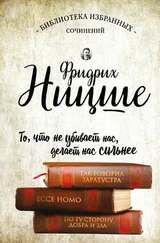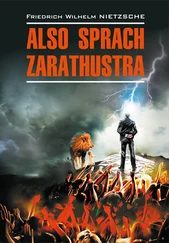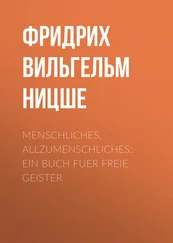Фридрих Ницше - Human, All-Too-Human - A Book For Free Spirits; Part II
Здесь есть возможность читать онлайн «Фридрих Ницше - Human, All-Too-Human - A Book For Free Spirits; Part II» — ознакомительный отрывок электронной книги совершенно бесплатно, а после прочтения отрывка купить полную версию. В некоторых случаях можно слушать аудио, скачать через торрент в формате fb2 и присутствует краткое содержание. Жанр: Философия, literature_19, foreign_antique, foreign_prose, на английском языке. Описание произведения, (предисловие) а так же отзывы посетителей доступны на портале библиотеки ЛибКат.
- Название:Human, All-Too-Human: A Book For Free Spirits; Part II
- Автор:
- Жанр:
- Год:неизвестен
- ISBN:нет данных
- Рейтинг книги:3 / 5. Голосов: 1
-
Избранное:Добавить в избранное
- Отзывы:
-
Ваша оценка:
- 60
- 1
- 2
- 3
- 4
- 5
Human, All-Too-Human: A Book For Free Spirits; Part II: краткое содержание, описание и аннотация
Предлагаем к чтению аннотацию, описание, краткое содержание или предисловие (зависит от того, что написал сам автор книги «Human, All-Too-Human: A Book For Free Spirits; Part II»). Если вы не нашли необходимую информацию о книге — напишите в комментариях, мы постараемся отыскать её.
Human, All-Too-Human: A Book For Free Spirits; Part II — читать онлайн ознакомительный отрывок
Ниже представлен текст книги, разбитый по страницам. Система сохранения места последней прочитанной страницы, позволяет с удобством читать онлайн бесплатно книгу «Human, All-Too-Human: A Book For Free Spirits; Part II», без необходимости каждый раз заново искать на чём Вы остановились. Поставьте закладку, и сможете в любой момент перейти на страницу, на которой закончили чтение.
Интервал:
Закладка:
“Love.” – The finest artistic conception wherein Christianity had the advantage over other religious systems lay in one word – Love. Hence it became the lyric religion (whereas in its two other creations Semitism bestowed heroico-epical religions upon the world). In the word “love” there is so much meaning, so much that stimulates and appeals to memory and hope, that even the meanest intelligence and the coldest heart feel some glimmering of its sense. The cleverest woman and the lowest man think of the comparatively unselfish moments of their whole life, even if with them Eros never soared high: and the vast number of beings who miss love from their parents or children or sweethearts, especially those whose sexual instincts have been refined away, have found their heart's desire in Christianity.
The Fulfilment of Christianity. – In Christianity there is also an Epicurean trend of thought, starting from the idea that God can only demand of man, his creation and his image, what it is possible for man to fulfil, and accordingly that Christian virtue and perfection are attainable and often attained. Now, for instance, the belief in loving one's enemies – even if it is only a belief or fancy, and by no means a psychological reality (a real love) – gives unalloyed happiness, so long as it is genuinely believed. (As to the reason of this, psychologist and Christian might well differ.) Hence earthly life, through the belief, I mean the fancy, that it satisfies not only the injunction to love our enemies, but all the other injunctions of Christianity, and that it has really assimilated and embodied in itself the Divine perfection according to the command, “Be perfect as your Father in heaven is perfect,” might actually become a holy life. Thus error can make Christ's promise come true.
Of the Future of Christianity. – We may be allowed to form a conjecture as to the disappearance of Christianity and as to the places where it will be the slowest to retreat, if we consider where and for what reasons Protestantism spread with such startling rapidity. As is well known, Protestantism promised to do far more cheaply all that the old Church did, without costly masses, pilgrimages, and priestly pomp and circumstance. It spread particularly among the Northern nations, which were not so deeply rooted as those of the South in the old Church's symbolism and love of ritual. In the South the more powerful pagan religion survived in Christianity, whereas in the North Christianity meant an opposition to and a break with the old-time creed, and hence was from the first more thoughtful and less sensual, but for that very reason, in times of peril, more fanatical and more obstinate. If from the standpoint of thought we succeed in uprooting Christianity, we can at once know the point where it will begin to disappear – the very point at which it will be most stubborn in defence. In other places it will bend but not break, lose its leaves but burst into leaf afresh, because the senses, and not thought, have gone over to its side. But it is the senses that maintain the belief that with all its expensive outlay the Church is more cheaply and conveniently managed than under the stern conditions of work and wages. Yet what does one hold leisure (or semi-idleness) to be worth, when once one has become accustomed to it? The senses plead against a dechristianised world, saying that there would be too much work to do in it and an insufficient supply of leisure. They take the part of magic – that is, they let God work himself ( oremus nos, Deus laboret ).
Theatricality and Honesty of Unbelievers. – There is no book that contains in such abundance or expresses so faithfully all that man occasionally finds salutary – ecstatic inward happiness, ready for sacrifice or death in the belief in and contemplation of his truth – as the book that tells of Christ. From that book a clever man may learn all the means whereby a book can be made into a world-book, a vade-mecum for all, and especially that master-means of representing everything as discovered, nothing as future and uncertain. All influential books try to leave the same impression, as if the widest intellectual horizon were circumscribed here and as if about the sun that shines here every constellation visible at present or in the future must revolve. – Must not then all purely scientific books be poor in influence on the same grounds as such books are rich in influence? Is not the book fated to live humble and among humble folk, in order to be crucified in the end and never resurrected? In relation to what the religious inform us of their “knowledge” and their “holy spirit,” are not all upright men of science “poor in spirit”? Can any religion demand more self-denial and draw the selfish out of themselves more inexorably than science? – This and similar things we may say, in any case with a certain theatricality, when we have to defend ourselves against believers, for it is impossible to conduct a defence without a certain amount of theatricality. But between ourselves our language must be more honest, and we employ a freedom that those believers are not even allowed, in their own interests, to understand. Away, then, with the monastic cowl of self-denial, with the appearance of humility! Much more and much better – so rings our truth! If science were not linked with the pleasure of knowledge, the utility of the thing known, what should we care for science? If a little faith, love, and hope did not lead our souls to knowledge, what would attract us to science? And if in science the ego means nothing, still the inventive, happy ego, every upright and industrious ego, means a great deal in the republic of the men of science. The homage of those who pay homage, the joy of those whom we wish well or honour, in some cases glory and a fair share of immortality, is the personal reward for every suppression of personality: to say nothing here of meaner views and rewards, although it is just on this account that the majority have sworn and always continue to swear fidelity to the laws of the republic and of science. If we had not remained in some degree unscientific, what would science matter to us? Taking everything together and speaking in plain language: “To a purely knowing being knowledge would be indifferent.” – Not the quality but the quantity of faith and devoutness distinguishes us from the pious, the believers. We are content with less. But should one of them cry out to us: “Be content and show yourselves contented!” we could easily answer: “As a matter of fact, we do not belong to the most discontented class. But you, if your faith makes you happy, show yourselves to be happy. Your faces have always done more harm to your faith than our reasons! If that glad message of your Bible were written in your faces, you would not need to demand belief in the authority of that book in such stiff-necked fashion. Your words, your actions should continually make the Bible superfluous – in fact, through you a new Bible should continually come into being. As it is, your apologia for Christianity is rooted in your unchristianity, and with your defence you write your own condemnation. If you, however, should wish to emerge from your dissatisfaction with Christianity, you should ponder over the experience of two thousand years, which, clothed in the modest form of a question, may be voiced as follows: ‘If Christ really intended to redeem the world, may he not be said to have failed?’ ”
The Poet as Guide to the Future. – All the surplus poetical force that still exists in modern humanity, but is not used under our conditions of life, should (without any deduction) be devoted to a definite goal – not to depicting the present nor to reviving and summarising the past, but to pointing the way to the future. Nor should this be so done as if the poet, like an imaginative political economist, had to anticipate a more favourable national and social state of things and picture their realisation. Rather will he, just as the earlier poets portrayed the images of the Gods, portray the fair images of men. He will divine those cases where, in the midst of our modern world and reality (which will not be shirked or repudiated in the usual poetic fashion), a great, noble soul is still possible, where it may be embodied in harmonious, equable conditions, where it may become permanent, visible, and representative of a type, and so, by the stimulus to imitation and envy, help to create the future. The poems of such a poet would be distinguished by appearing secluded and protected from the heated atmosphere of the passions. The irremediable failure, the shattering of all the strings of the human instrument, the scornful laughter and gnashing of teeth, and all tragedy and comedy in the usual old sense, would appear by the side of this new art as mere archaic lumber, a blurring of the outlines of the world-picture. Strength, kindness, gentleness, purity, and an unsought, innate moderation in the personalities and their action: a levelled soil, giving rest and pleasure to the foot: a shining heaven mirrored in faces and events: science and art welded into a new unity: the mind living together with her sister, the soul, without arrogance or jealousy, and enticing from contrasts the grace of seriousness, not the impatience of discord – all this would be the general environment, the background on which the delicate differences of the embodied ideals would make the real picture, that of ever-growing human majesty. Many roads to this poetry of the future start from Goethe, but the quest needs good pathfinders and above all a far greater strength than is possessed by modern poets, who unscrupulously represent the half-animal and the immaturity and intemperance that are mistaken by them for power and naturalness.
Читать дальшеИнтервал:
Закладка:
Похожие книги на «Human, All-Too-Human: A Book For Free Spirits; Part II»
Представляем Вашему вниманию похожие книги на «Human, All-Too-Human: A Book For Free Spirits; Part II» списком для выбора. Мы отобрали схожую по названию и смыслу литературу в надежде предоставить читателям больше вариантов отыскать новые, интересные, ещё непрочитанные произведения.
Обсуждение, отзывы о книге «Human, All-Too-Human: A Book For Free Spirits; Part II» и просто собственные мнения читателей. Оставьте ваши комментарии, напишите, что Вы думаете о произведении, его смысле или главных героях. Укажите что конкретно понравилось, а что нет, и почему Вы так считаете.












